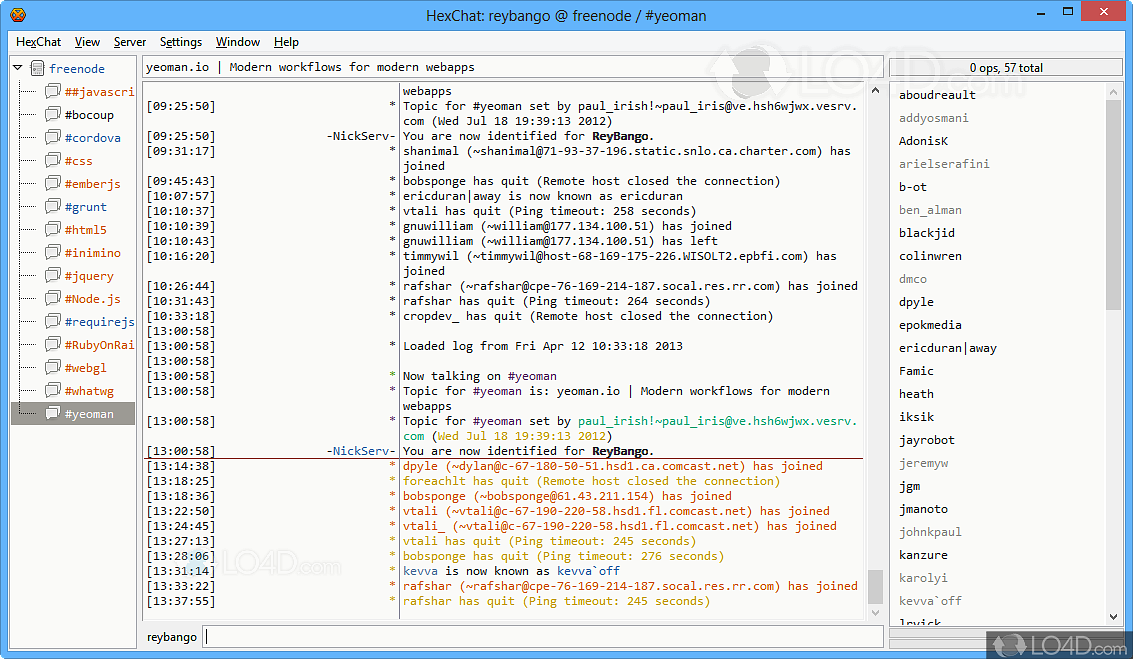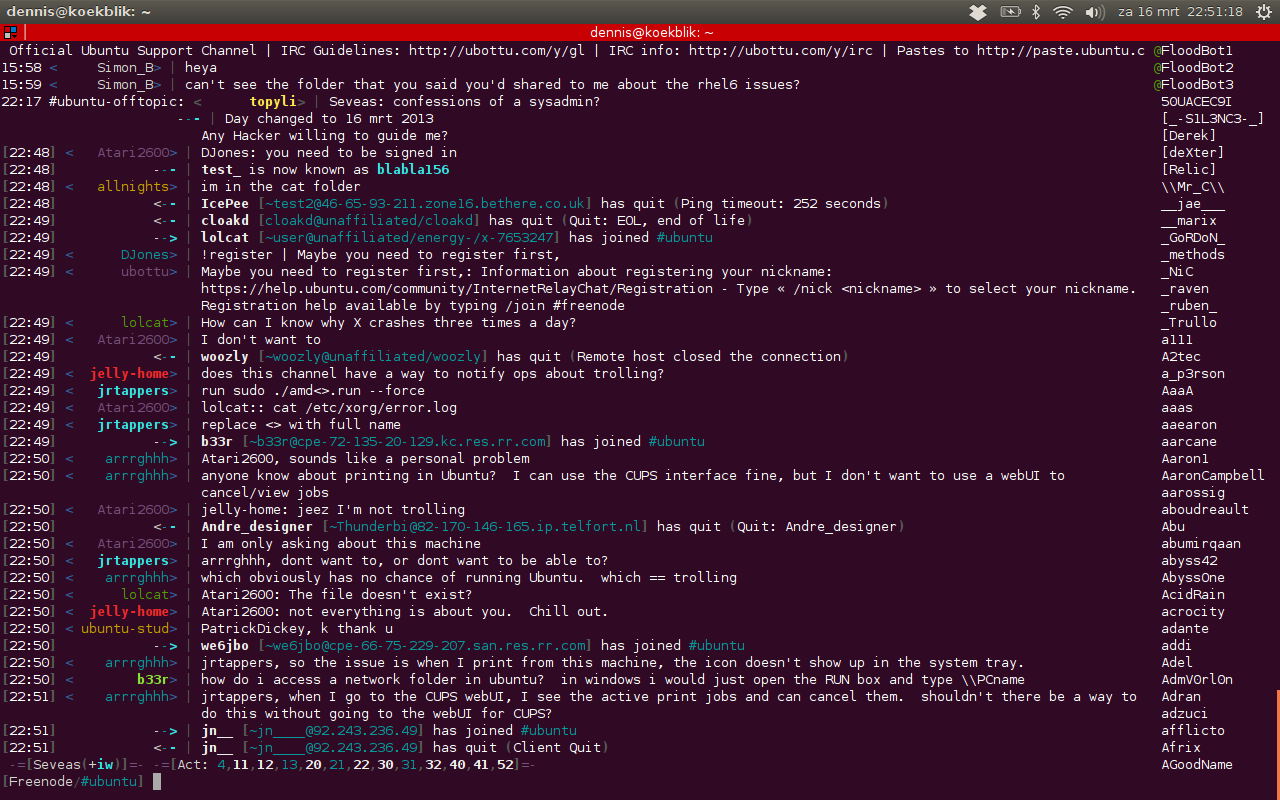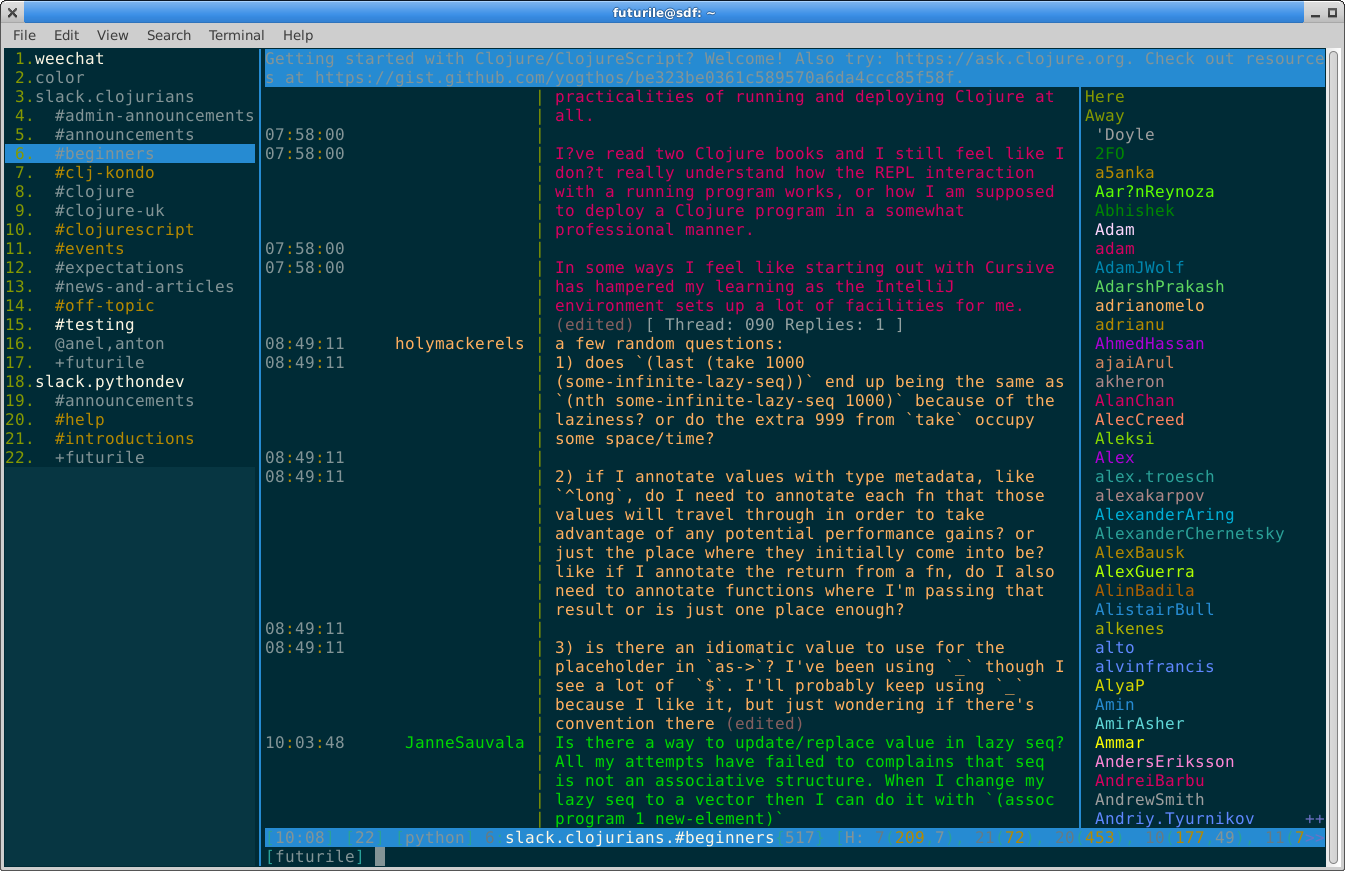
Listen kid, we don't have much time left. Globohomo is closing up around us, so it's absolutely critical that you listen to me. I know you love your gay mobile messaging apps and I'm sorry that I have to break it to you, but they are shit. All of them. Utter shit.
They are not private.
But muh end to end encryption
Oh,
really?
Then recite the first 2 letters of your private key please.
Exactly.
And don't let me get stared on front end and protocol complexity. Who owns the servers? Probably the CIA.
Yet, worry not kiddo, I will teach you my boomer ways. I'll do everything to get on your level too...

First let's get you up to date on the basic terminology. It so happens that your bloatware still retains some resemblance of the ancient wisdom. Here is a conversion table for IRC/stupid concepts.
| Zoomieware | IRC |
|---|---|
| Network | |
| Group | Server |
| Room | Channel |
| App | Client |
| Account | Optional NickServ registration |
| "@User" tagging | "User:" tagging |
| Direct message | Private message |
| Markdown (R*ddit) formatting | Escape codes |
| Emoji | Ascii art |
| Multi-media | cancer |
I'll throw you in the deep water and suggest getting an IRC client. Your IRC app if you will. Since IRC is not the property of FAGMAN, you have options. However, I know you are not used to making decisions, so I will give you a few hints.
Reasonably good choice, very common too.
Link
Only for real h4xx0rs with their arcane character buffers, otherwise known as 4chan. No, wait. Terminals.
Link
Irssi, but better. Cope with it Emil. However, admittedly, it might get confusing. At the same time the documentation is gold, highly recommended if you are not scared away easily.
Link
Now, depending on your previous choice, connecting to a server could be done with various commands / menu points. Lucky you, since the protocol is both standardized and plain text, you can always fall back on that. Here is a list of all commands. If client documentation ever fails you, this shall save your ass.
For example, under Weechat you could always execute a raw command after a "/quote" command. Like this:
Now, to be safe, here is a quick stack of commands to get you connected to Rizon, a very popular server.
The hexchat interface in really straight foward, it'll do SSL automatically, landmine click on the server after inputting your user details for the first time.
Yes, it's the same.
Great, you are ready for chatting now.
Surprise! They are gone! There is no persistent history as you would be used to. Instead you can turn on logging if you look up how. That way you will have a set of text documents directly on your hard drive. Isn't this ownership thing nice? You should do it more.
A concept closely related to the previous point of no history is that you will not receive messages unless you are connected. Guess what, that's how computers work. The "cloud" does not store data. The CIA does.
The no-brainer solution is to be always connected. Thankfully we have more sophisticated methods than leaving our ThinkPad T440s on 24/7. The solution is the so called bouncer . It "bounces" your connection, effectively as a middle man. The bouncer stays forever powered on. It connects to the IRC server, you connect to the bouncer and pretend nothing has happened, yet you have history now.
The only bouncer you have to know about is ZNC . If you are rich enough to invest 50$ in a Raspberry Pi (3) or own a server of any different kind, then you are sorted for life. Otherwise, you could still ask someone nicely to register you on his instance.
You can host your own server on any machine that has at least the computational capability of a PDP-11. That's true privacy for you. On an unrelated note, here is a funny video to account for your attention span problems: WKUK. IRCD-hybrid is recommended.
Now assume that you wish to host either a server or a bouncer, but you encounter one or more of the following issues:
Tor can solve all of those and since IRC is minimalistic, the two fit together like Linux and autism.
To host absolutely anything over Tor follow THIS IS A PLACE HOLDER FOR NOW guide. To connect to IRC over Tor, you will need 2 packages: tor (not the browser!) and proxychains(4). Assuming the tor daemon is running, you have this line somewhere in your /etc/torrc : SocksPort 9050 and this line in your /etc/proxychains.conf: socks4 127.0.0.1 9050 . This should Just Werk™: proxychains -q [your-client] .